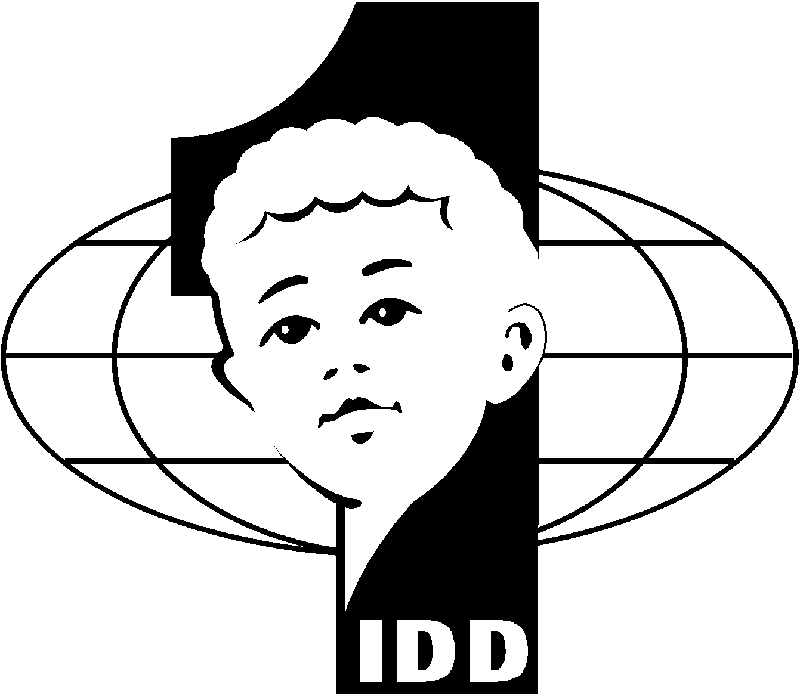

The Worldwide Service Project
The mission of the Worldwide Service Project is to virtually eliminate the largest single cause of preventable mental retardation in children - IDD. The K-Family's goal is to secure $75 million to fulfill Kiwanis International's commitment to UNICEF. More than 1.5 billion people in more than 100 countries still suffer from or are at risk of IDD.
Iodine Deficiency
Iodine is a natural component of thyroid hormones. It is essential for proper brain development and the proper functioning of the thyroid gland, muscels, liver, heart, adn kidneys. It does not occur naturally in specific foods. Iodine is present in soil and seawater. Where iodine is deficient in the soil, people are at risk of IDD. The deficiency exists in mountainous regions or areas where flooding or erosion remove iodine from the terrain in Africa, Asia, Eastern Europe, and Latin America. IDD was even a major problem in the US until the mid-20th Century. A person needs an average of 0.0001 grams of iodine per day or just one teaspoonful of iodine over a lifetime. The average cost to provide iodine for one year for one person is estimated at less than five cents.
Iodine Deficiency Disorders
Permanent disabilities or ill health from IDD can occur at any age but are most threatening to fetuses and young chidren. These may experience goiter(swelling of the thyroid gland), speech loss, hearing loss, mental retardation, dwarfism, vision problems, and cretinism. Pregnant women with IDD may experience miscarriages, stillbirth, or the birth of children with permanent mental retardation.
IDD By The Numbers
More than 5 billion people suffer from or are at-risk of IDD. That's one quarter of the world's population. Roughly 650 million people experience goiter caused by IDD. 26 million have varying degrees of brain damage and more than six million are cretins as a result of IDD.
How WSP Funds Are Used
The funds raised by the K-Family support widespread, culturally health education programs. WPS funds support the technology needed to fortify and package salt or to provide fortified salt where it is not available today. These funds also support the development of national plans to eliminate IDD and also to support the efforts of UNICEF, WHO, and their partners in publuic health to ensure that every IDD-affected nation has strong, enforceable laws requiring all producers to iodize their salt.
HOME



